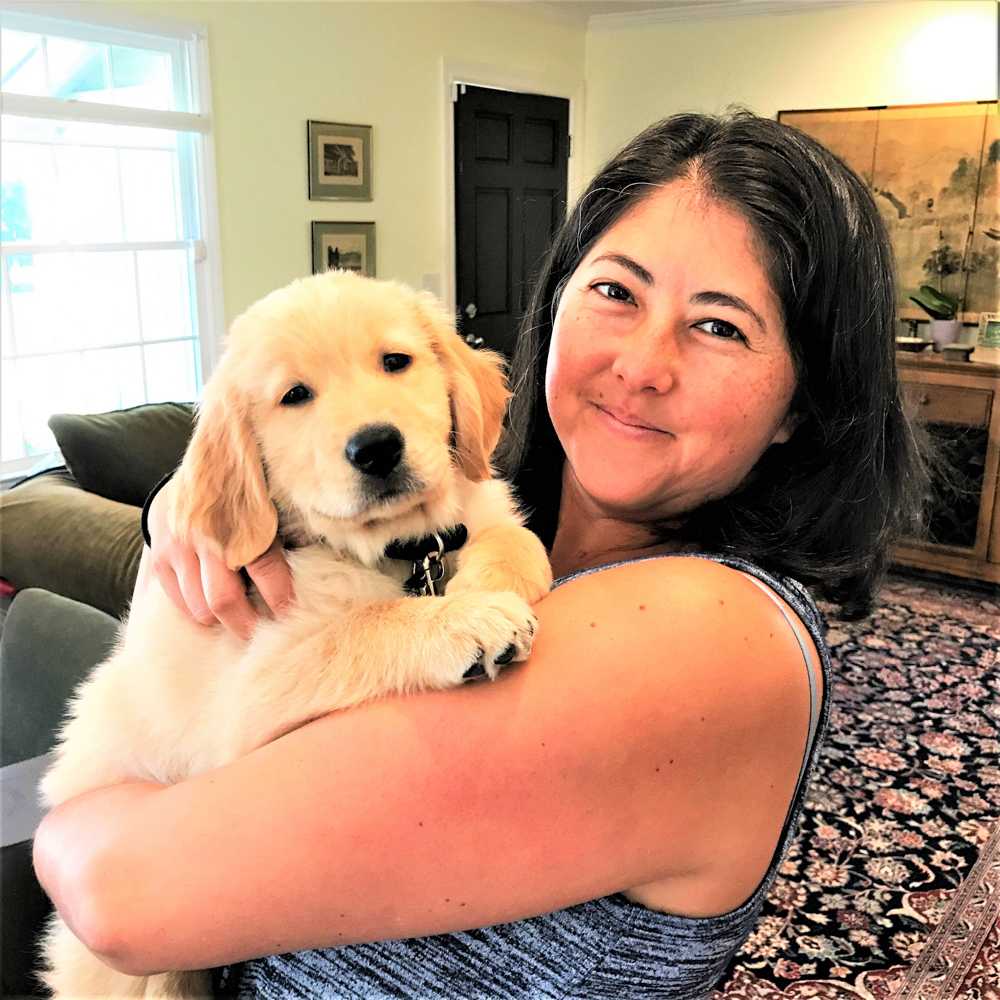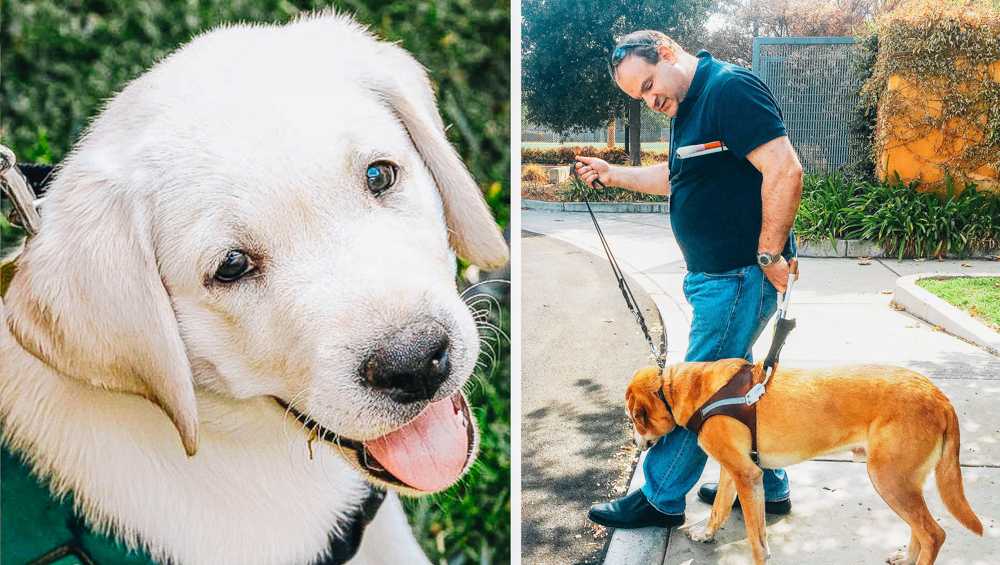Downy paws scramble against jean-clad legs in a determined attempt to reach the food pouch. Meridian, a nine-week old golden retriever, is a squirming bundle of warm kisses and a wagging tail.
The process that transforms a rambunctious puppy into a calm guide requires relentless effort and coordination between puppy raisers and trainers who dedicate their time to empowering individuals who require guide dog assistance.
For over 80 years, the visually impaired have relied on guide dogs to achieve greater autonomy in their life. The world’s first guide dog school opened exactly 80 years ago, according to the International Guide Dog Federation.
Many local visually impaired or blind individuals receive their guide dogs from the organization Guide Dogs for the Blind. Based in San Rafael, California and Boring, Oregon, GDB prepares highly qualified guide dogs to serve and enable those with vision loss.
Puppy raisers
Once the puppies are eight weeks old, GDB sends them to puppy raisers who will take care of the dogs until they are 13 to 15 months old. Puppy raisers like Erin Mittmann, a recent Paly graduate, and Robin Levy, a retired teacher at Jordan Middle School, volunteer their time welcoming puppies into their homes and teaching them the basics of being a focused dog.

For over a year, Mittmann raised Jackie, a yellow labrador retriever.
“I tended to play with her … before I left for school, and after [school] I’d take her out to play and walk [her],” says Mittmann.
“Raising a guide dog puppy is really a 24/7 volunteer job,” Levy says. “We train them how to be good dogs. Guide Dogs [for the Blind], professionals, train them actually how to work in a harness, stop at curbs, and do all the things that guide dogs do.”
One of puppy raisers’ responsibilities is to expose the puppies to different environments so they will be confident adult guides.
Levy has often taken her puppies to experience a day at Jordan Middle School, where she taught sixth grade until last year.
“I always felt like if a dog could make it through a day of middle school, they’re pretty bomb-proof because it’s just, you know, it’s crazy town,” Levy says. “Really chaotic.”
Career change dogs
According to Levy, only about 50 percent of puppies raised to be guide dogs successfully graduate the curriculum at GDB. Dogs who do not graduate the program are called “career change dogs.”
“One dog got career-changed because he drooled too much” and another because “he liked eating socks, and it was so fast they [the owners] couldn’t stop it,” Mittmann says.
Depending on their personality, career-changed-dogs can become another type of service dog or a family adopts them. Sometimes the puppy raisers can even adopt back the dogs they raised who failed to meet the guide dog requirements.
Despite the chance that they will see the dog again, raisers still dread sending their puppy to GDB for more training.
“Even though you know they’re going to do something amazing for someone else, even though you know that whoever has their food bowl is where the dog wants to be, they’re not sitting there missing you,” Levy says. “All of those things, it’s really hard.”
“Even though you know they’re going to do something amazing for someone else, even though you know that whoever has their food bowl is where the dog wants to be, they’re not sitting there missing you. All of those things, it’s really hard.”
– Robin Levy, a dog trainer and retired Jordan Middle School teacher
Levy has raised puppies for 14 years, and now she helps newer puppy raisers by coordinating meetings for Mid Peninsula Puppy Guides, an organization that hosts biweekly meetings for local puppy raisers.
At meetings, raisers discuss problems they have encountered while training the puppies.
After the discussion, carpet squares are laid out for a game of dog tic-tac-toe between golden retrievers and labradors. Dogs can practice the ‘stay’ command and owners can show off their hard work.
Working guide
David Hoffman, a social worker at the Vista Center for the Blind and Visually Impaired, started working with his guide dog, Calvin, seven years ago.
“With Calvin, the biggest difference is speed,” Hoffman says. “It gives you confidence to travel to places you might not be familiar with because you know the dog is familiar with commands like ‘find the curb’ or ‘find the door.’”
Guide dogs are more than just a helping paw or traffic attendant. The dogs become steady companions to their users and part of the family.
As Hoffman says of Calvin: “He’s my best friend and I’m his best friend.”





